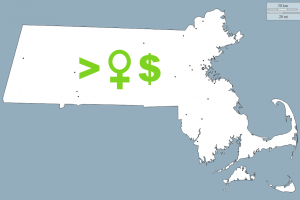Pay Equality and Wealth Equality
Today is Black Women’s Equal Pay Day. August 1 is a day to bring focus to the economic issue of Black women’s disproportionately lower pay. However the economic issue affects not only Black women, but cascades to communities and our society as a whole. Pay inequality for any US workers is everyone’s issue. In the following video, Robert Reich, Former Secretary of Labor and Elana Chavez Quezada, Co-Founder, Closing the Women’s Wealth Gap discuss wealth inequality and why it matters to everyone.
Summary:
Women are more likely to be the sole, primary or co-breadwinner in their household than men. Yet, women still earn on average $0.79 on the dollar, earned by White men. However, both income and wealth inequality matter, as wealth is a more accurate view of financial wellness.
Wealth is simply defined as assets minus debts.
- Because women earn less than men, it is obviously more difficult to save.
- Women are more likely to work part time, usually due to family and child care obligations.
- Women are less likely to access retirement and tax subsidy opportunities based on how they are structured.
Women OWN only $0.32 on the dollar as compared to White men. A stunning figure, however Black and Latina women own just pennies on the dollar. It was only 1839 that Mississippi was the first state to grant women the right to own property.
How to Address
There are three areas upon which to concentrate.
Income – Push for Change in the Following:
- Push for pay Equity
- Affordable Child Care
- Paid Family Leave
Wealth – Education and Changes to the Structures of the Following:
- Retirement Savings:
Expand access to retirement accounts such as offering smaller companies to have better access to retirement structured offerings. - Support new strategies such as includes portable benefits not tied directly to an employer.
Taxes – Education on Benefits and Allowances Already in Existence, and Needed Changes:
- Two out of three households don’t itemize deductions which increase refunds
- Home mortgage tax deduction is not used when taxes aren’t itemized
- More education is needed on taxes and tax deductions and credits
- Women, especially low income, and Black and Latinas are more likely to Benefit from tax credits
- Expanding the income earned income tax credit and child tax credit should be priorities.
Some Additional Thoughts
Nearly two-thirds of minimum-wage workers are women. The US federal minimum wage is still $7.25 an hour without any increase since 2007. This amount at 40 hours per week falls just above the US poverty line rate of $12,060, for 1 person and falls below the poverty line of $16,240 for two person household. While minimum wage has not increased since 2007, the poverty level ceiling has increased, making subsidies and assistance more difficult, before even factoring in increased expenses and cost of living increases.
The women’s wealth gap affects women of color and minorities the most. The effect is a continuing and sometimes downward cycle of increased work, less benefits and dramatic impact across the entire economy. Equal pay and programs to support sustained savings and investment benefits our entire economy, by encouraging savings, investment in one’s own future, and our communities. We all benefit, we should all be fighting to end the pay, and the wealth gap.
Some additional reading referenced above is a timeline of women’s pay, wealth and ownership rights. https://www.theguardian.com/money/us-money-blog/2014/aug/11/women-rights-money-timeline-history


















